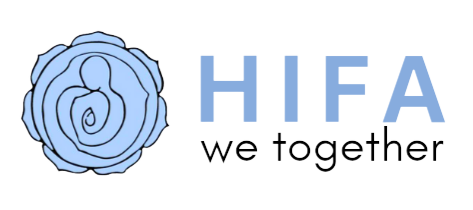International Women’s Day on March 8: Meaning, Facts, and Women in Nigeria
International Women’s Day on March 8 is a globally significant day dedicated to promoting gender equality and honoring the achievements of women. While this day is officially celebrated in many countries, the question arises: What is the situation in Nigeria? What role do women play in Nigerian society? Are there any events or initiatives for Women’s Day?
The Significance of International Women’s Day
For over a century, International Women’s Day has been a symbol of the fight for equality, women’s rights, and social justice. Originally initiated by the labor movement, the day is now used by women’s organizations, governments, and businesses worldwide to highlight injustices and celebrate progress.
March 8 is not only a day of celebration but also an opportunity for a critical reflection on ongoing challenges, including pay inequality, gender-based violence, access to education, and economic participation.
Women in Nigeria: Progress and Challenges
Nigeria is the most populous country in Africa and one of its strongest economies. However, women still face significant challenges, particularly in education, political participation, and economic independence.
1. Economic Participation and the Job Market
Nigeria has one of Africa’s largest economies, yet women are often disadvantaged in the labor market. Many work in the informal sector, such as agriculture or small-scale trade, where they earn low wages and lack social security. Women remain underrepresented in leadership positions and well-paid professions.
Nevertheless, progress is being made: More and more women are starting businesses or advancing in fields traditionally dominated by men. Nigerian women are increasingly successful in the tech industry and fintech start-ups.
2. Education and Equal Opportunities
While education opportunities for girls have improved in urban areas, significant disparities remain in rural regions. Early marriage, financial barriers, and traditional gender roles cause many girls to drop out of school. However, there are numerous initiatives that promote girls’ education and encourage women to pursue STEM subjects (science, technology, engineering, and mathematics).
3. Political Participation
The representation of women in Nigerian politics remains low. Although Nigeria signed the UN’s gender equality goals in 1995, women are severely underrepresented in government and parliament. Initiatives like “Elect Her” are working to ensure that more women take on political roles and actively contribute to governance.
4. Women’s Rights and Social Challenges
Nigeria faces challenges such as gender-based violence, restricted rights in marriage and family life, and workplace discrimination.
However, women’s rights organizations, activists, and international NGOs are fighting for change through laws against domestic violence and programs that empower women.
How is Women’s Day Celebrated in Nigeria?
Unlike in some Western countries where March 8 is a public holiday, Women’s Day is not officially recognized as a work-free day in Nigeria. However, numerous events focus on women’s rights, gender equality, and the achievements of Nigerian women.
Initiatives and Events
- Workshops and conferences on women’s rights, education, and entrepreneurship
- Social media campaigns that provide a platform for Nigerian women
- Celebratory events at universities, NGOs, and companies that empower women
- Charity projects and fundraising initiatives for women and girls in vulnerable situations
Particularly in major cities like Lagos, Abuja, and Port Harcourt, women’s rights groups, businesses, and international organizations organize events to raise awareness of gender equality.
Women as Role Models in Nigeria
Nigeria has many inspiring women who serve as role models and actively advocate for gender equality:
- Ngozi Okonjo-Iweala, the first female Director-General of the WTO
- Chimamanda Ngozi Adichie, bestselling author and feminist
- Amina Mohammed, Deputy Secretary-General of the UN
- Mo Abudu, successful media entrepreneur and producer
These women symbolize Nigeria’s progress in recent years and inspire a new generation of young women.
Conclusion: Women’s Day as an Opportunity for Change
Although International Women’s Day is not a public holiday in Nigeria, it remains an important occasion to highlight the achievements and challenges of Nigerian women. The increasing number of women in education, business, and politics indicates that the country is moving toward greater gender equality—though there is still much work to be done.
Nigeria is at a turning point: With growing support and increased attention to women’s rights, March 8 can become an even stronger symbol of progress and change.

